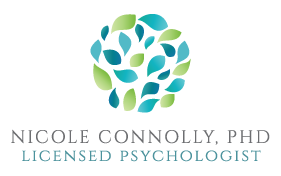Embracing Neurodiversity: A Modern Approach to Autism in Therapy
In recent years, our understanding of autism spectrum disorder (ASD) has undergone significant evolution. As therapists, it's essential to recognize and adapt to these changes. We have been actively working toward embracing a more neurodiversity-affirming approach in our practice to better reflect current thinking about autism and the ways that therapists can best help autistic individuals thrive.
Shifting Perspectives
Embracing Neurodiversity: A Modern Approach to Autism in Therapy, by Nicole Connolly, Ph.D. of the Connolly Psychology Group in Santa Clarita, California.
Traditionally, autism was viewed through a deficit-based lens, focusing on the challenges and limitations individuals faced. However, with the rise of the neurodiversity-affirming movement, there's been a shift towards recognizing the diverse strengths and abilities of autistic individuals.
If you are not already familiar with the term neurodiversity-affirming, it refers to an approach that both recognizes and values the inherent diversity of neurological functioning among individuals. It acknowledges that variations in brain function, such as those seen in autism spectrum disorder (ASD), attention deficit hyperactivity disorder (ADHD), dyslexia, and other neurodevelopmental conditions, are natural and valuable aspects of human diversity.
Our therapists acknowledge and celebrate these differences, understanding that neurodiversity enriches our society. We strive to help our autistic clients see their autism as one facet of themselves and to accept themselves for who they are while also identifying areas where they need more support to successfully live the life that they want to live.
Person-Centered Approach
While we have always made it a priority to meet every client where they are, we have continued to embrace a person-centered approach in our clinic. We work to recognize the unique needs and preferences of each individual with autism. By prioritizing their autonomy and agency, we empower them to actively participate in their therapeutic journey, fostering a sense of ownership and self-advocacy.
Cultivating Empathy and Understanding
Understanding autism requires more than just theoretical knowledge; it requires empathy and understanding from lived experience. Our therapists participate in training and education to deepen their understanding of autism from both clinical and personal perspectives. By fostering empathy and cultural competence, we work to create a safe and inclusive environment where autistic individuals feel understood and accepted.
Collaborative Partnerships
We believe in the power of collaboration, partnering with autistic individuals, their families, and multidisciplinary professionals to provide holistic support. Through open communication and mutual respect, we collaborate to create personalized interventions that honor each individual's strengths, interests, and goals. We also try to identify specific support needs and help our clients access other types of therapy to help them reach their goals, such as occupational therapy or speech therapy.
Embracing Neurodiversity in Society
Our commitment to neurodiversity extends beyond the therapy room. We advocate for societal changes that promote inclusion and accessibility for autistic individuals. Whether it's advocating for inclusive education policies, promoting workplace accommodations, or challenging societal stereotypes, we actively participate in creating a more equitable and accepting world for neurodiverse individuals.
Moving forward, we are also hoping to focus some time on updating some of the resources and posts on our website that have not been edited recently to better reflect these changes in our understanding of autism. With any resources you use online (or off!), we would encourage you to look at publication dates to ensure that the information is current.
As our understanding of autism continues to evolve, so too must our therapeutic approaches. By embracing neurodiversity, adopting person-centered practices, cultivating empathy, fostering collaborative partnerships, and advocating for societal change, we are actively working to create a more inclusive and supportive environment for neurodivergent individuals.
If you are in the Santa Clarita area (or anywhere in the state of California) and are looking to meet with a therapist who really understands the autistic or neurodivergent experience, please contact us to schedule your initial appointment. We particularly specialize in helping autistic folks understand and manage their anxiety and in helping our families better advocate for their needs through things such as Regional Center or the local school district’s IEP process.

